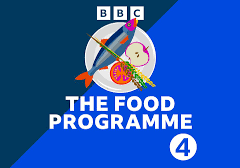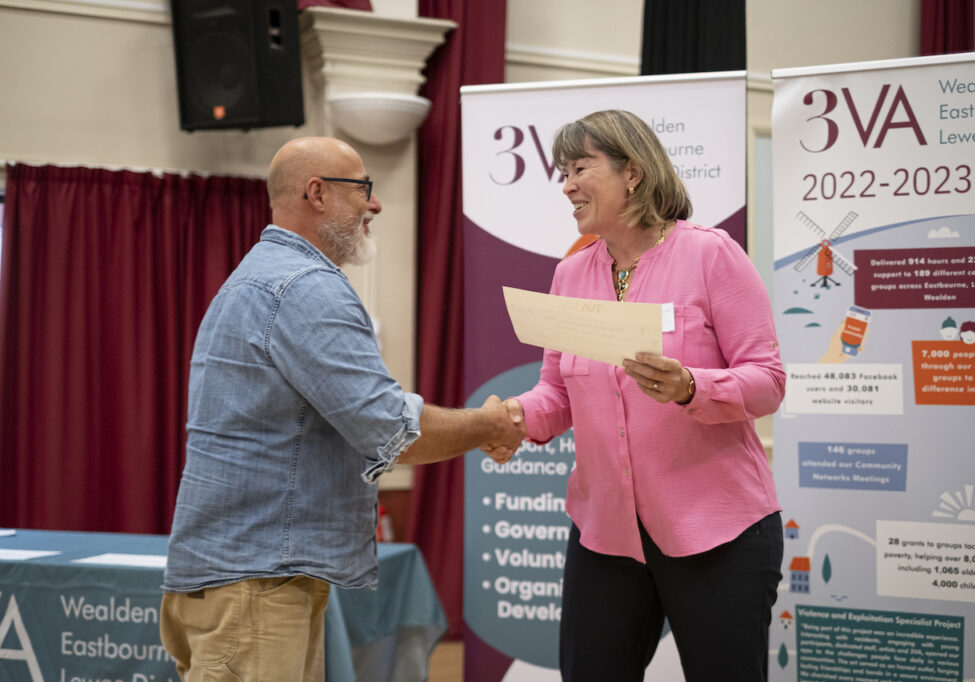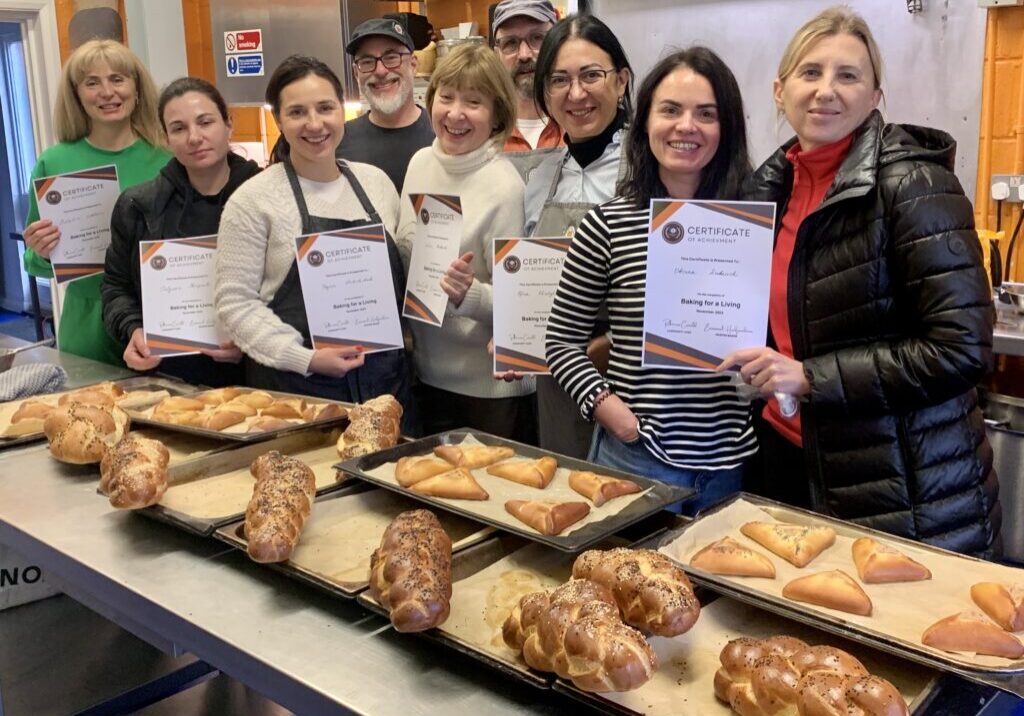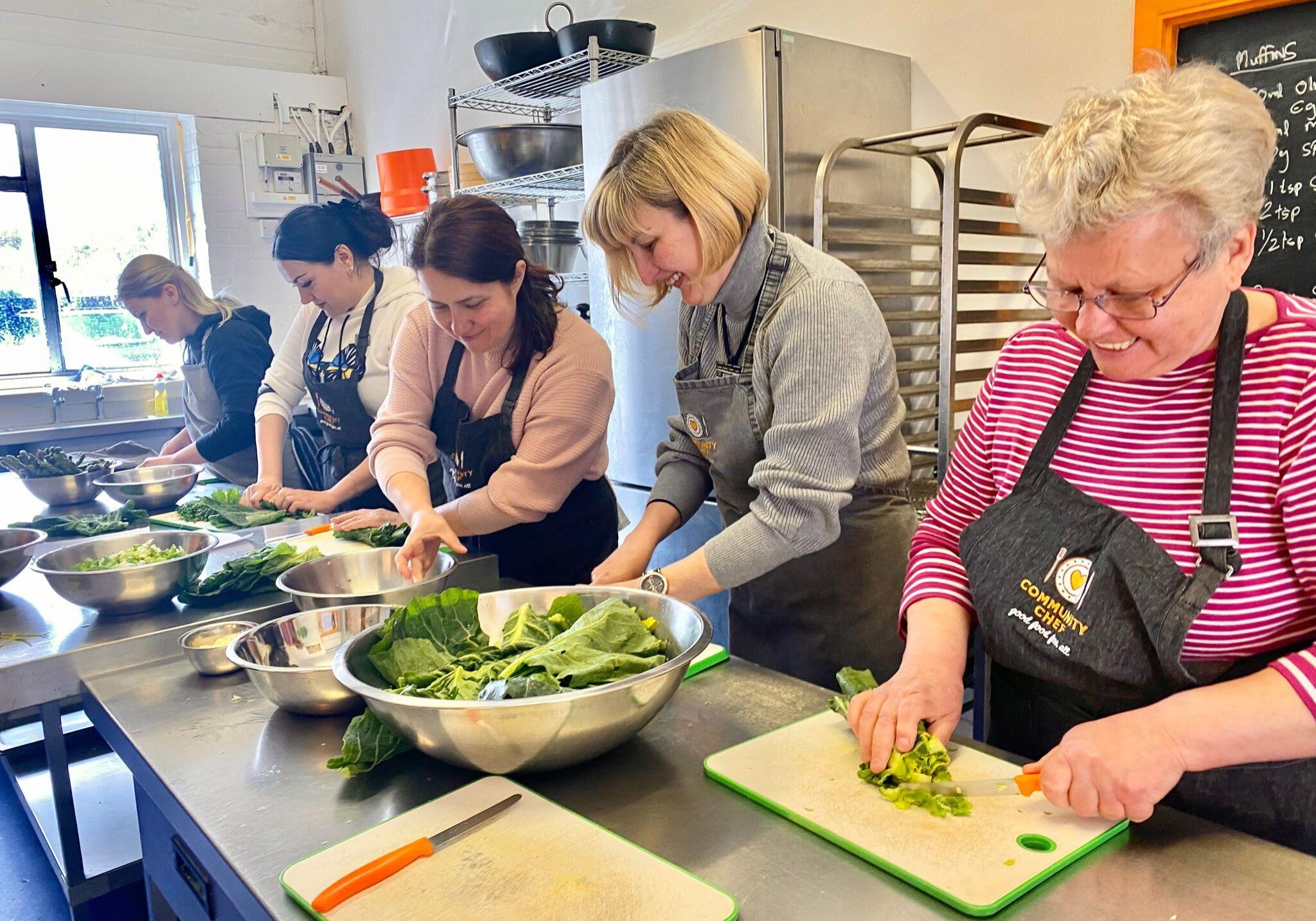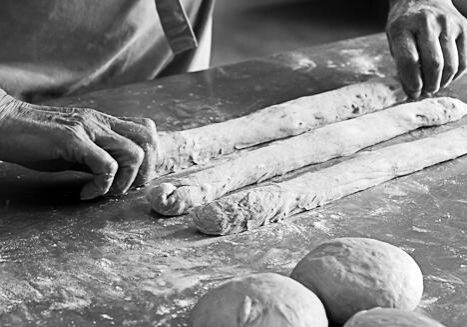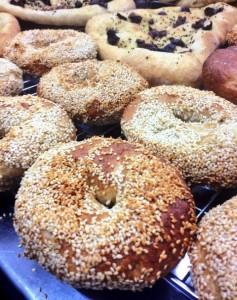 The Love of Bread – I started my bready adventure when as 9 years old reprobate my mum deposited me with a “friend” of hers for a few hours. It so happens that this friend was a trainee Hassidic rabbi, who in addition to his life of study and prayer also mentored wayward kids like myself. The counterpoint to his studious lifestyle was his culinary passion and on this fine day he was making bagels. I was immediately fascinated by the process and loved the magic of seeing the dough shaped, boiled and then baked. He explained the basic process and gave me the big responsibility of fishing out the boiled dough from the steaming vat and then dipping them in poppy seeds and placing them onto trays to be baked.
The Love of Bread – I started my bready adventure when as 9 years old reprobate my mum deposited me with a “friend” of hers for a few hours. It so happens that this friend was a trainee Hassidic rabbi, who in addition to his life of study and prayer also mentored wayward kids like myself. The counterpoint to his studious lifestyle was his culinary passion and on this fine day he was making bagels. I was immediately fascinated by the process and loved the magic of seeing the dough shaped, boiled and then baked. He explained the basic process and gave me the big responsibility of fishing out the boiled dough from the steaming vat and then dipping them in poppy seeds and placing them onto trays to be baked.
The sense of achievement I felt when they emerged from the oven was immense, they looked and tasted better than any bread I’d ever had. Not once did he mention my behaviour nor any if the issues my mum had asked him to address, but I left his house, calm and focused with an increased sense of self-confidence, not to mention a very bloated tummy from eating far too many with bagels with far too much cream cheese.
For me, this story is poignant on many levels. After a vicarious route, I did eventually train as a baker and worked in the industry for a few years but was never really moved by the commercial side of things. Fundamentally, I wanted to help people and be of service, rather than be a cog in the food production machine. For the past 12 years I’ve run a socially focused business which uses cookery as a tool for promoting positive change in the world. We teach people to cook, spearhead health and environmental campaigns and undertake direct community development. We have taught tens of thousands of people to cook and also trained hundreds more to run their own community cookery projects with our Cookery Leaders Training programme. I’ve no doubt that my bagel making afternoon with the rabbi was partially responsible for this.
Bread is a key part of the work we do and I’ve always taught people to make their own real bread, the key reasons being that baking bread is deeply rewarding and helps people to be more confidant cooks. Most of the people we work with are on a low or limited income and home-made bread is a great example of good home-economics in practice. Good bread, home baked or artisan produced is a tangible, physical everyday food which has the potential to inspire people to help create a more ethical, ecological and sustainable food system.
Having seen the power bread has to change behaviour, make friends and influence people, I decided to pilot a dedicated community bread making project in the town I live. I set up the Lewes Bread Club and started running low cost workshops from the food tech room at our local school. I involved a few other bakers and we ran 16 different sessions which were attended by over 100 people. We baked 38 different breads and produced a lovely e-book of recipes and images. On the back of this, I was able to secure some funding from the National Lottery to support the setting up of a community food hub and to develop a training to help others set up their own bread clubs. The Lewes Bread Club now runs from The Lewes Community Kitchen where amongst lots of foodie activities, we run continue to run low cost bread making workshops as well as community bake and share days.

